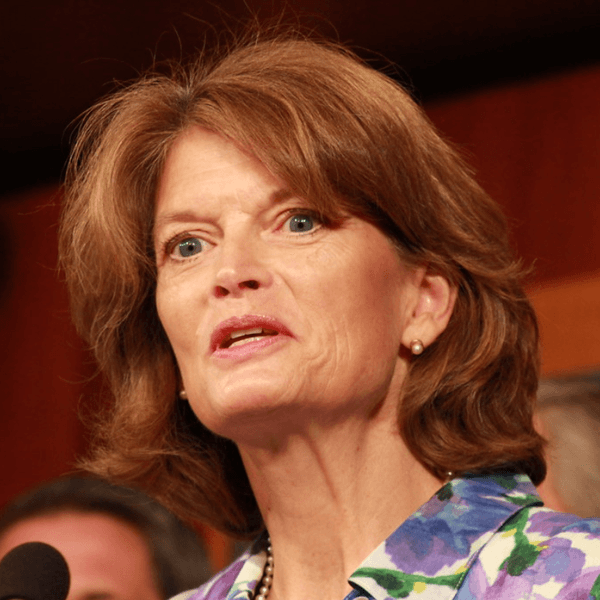
By Margaret Newkirk, Bloomberg News (TNS)
MONTGOMERY, Ala. — Alabama Governor Robert Bentley is taking on fellow Republicans as he seeks to mend a $700 million hole in the state’s frayed $1.8 billion general fund with a tax increase.
The state party is urging lawmakers to defy him. Republicans distanced themselves in speeches and newspaper columns. One state senator who’s a former U.S. Marine paid for a billboard in Huntsville.
“Governor Bentley wants to raise your taxes,” it reads. “I will not let that happen. Semper Fi. Senator Bill Holtzclaw.”
Bentley, 72, joins at least eight Republican governors gambling their careers by bucking anti-tax orthodoxy as the party enjoys its greatest power over state capitals in almost a century. The blowback provides a lesson in the difficulty for Republican chief executives of running states when fiscal reality collides with decades of anti-tax rhetoric.
In Georgia, two-term Republican Nathan Deal is prodding lawmakers to raise funds for infrastructure. Louisiana’s Bobby Jindal, a potential 2016 Republican presidential contender, last week proposed rolling back more than $500 million of tax credits to avert steep cuts to universities and other programs.
“Some states are feeling they’re out of options,” said Norton Francis, who follows state issues at the Tax Policy Center in Washington. “The extent that they’re proposing these increases that they feel are necessary to protect the fiscal situation of the state is pretty remarkable, given the uphill battle they have.”
Aversion to taxes runs deep in Alabama, which enshrined a Tea Party-like distrust of government in its constitution more than a century ago. It ties the state’s hands on how much to tax, what to tax and how to spend the money taxes bring in.
Bentley is a reluctant agent of change.
“No one likes to pay taxes,” Bentley told reporters in Montgomery on Friday, when he released detailed plans for the first time. “No one wants to pay more tax. I don’t like it any more than you do, but we have failed to address the challenges that lie before us.”
A dermatologist, Sunday-school teacher and signer of activist Grover Norquist’s pledge to levy no new taxes, Bentley spent eight years in the Legislature before winning the governor’s office in 2010 with a longshot campaign.
He took office in 2011 as Republicans held majorities in the Senate and House of Representatives for the first time in 136 years. A Birmingham News columnist in February said Bentley’s first four years were “mostly irrelevant” as he was pushed aside by legislative leaders. Two months into his second term, that has begun to change.
Bentley proposed raising $541 million in additional revenue through taxes on cigarettes, car sales, and insurance premiums and utilities, among other steps. He also wants to use $187 million earmarked for other funds to close the deficit in the year beginning in July.
“There is nothing more conservative than getting our fiscal house in order,” Bentley said.
Alabama’s state and local government taxes per resident are the lowest in the U.S., according to the Public Affairs Research Council of Alabama. It also has the 12th-worst tax structure in terms of disproportionate impact on the poor, according to Meg Wiehe, state policy director for the Institute on Taxation and Economic Policy in Washington.
Alabama collects sales taxes on food. In 2010, its property levies were the nation’s lowest, according to the Tax Foundation. And it’s one of only three states that allow citizens to deduct all of their federal income tax, no matter how much they earn.
The system has roots in the Reconstruction era after the Civil War. Concerned that newly empowered blacks would foist higher taxes on richer whites, Alabama’s leaders wrote rate caps and spending rules into the constitution.
Changes to income-tax rates have to be approved by a vote of the people. All but 9 percent of the revenue Alabama collects is earmarked for specific purposes, Bentley said. While income taxes dedicated to education have surged since the end of the recession, the hodgepodge of more than 40 levies that feed the general fund hasn’t kept up.
“During the past several fiscal years, the general fund has relied on significant support from non-recurring revenues, including drawing down reserves,” according to a Standard & Poor’s report in July.
The fund pays for most services outside education. That includes the prison system, which has half the guards and almost twice the inmates it’s built to hold. Parole officers supervise 195 ex-convicts each. Judges have been sending people to prison because they know the probation system can’t handle them, said Eddie Cook, the assistant director of the Alabama Board of Pardons and Paroles.
The Highway Patrol has less than half the troopers it should, according to a University of Alabama study. Wait times at the motor-vehicles department are infamous.
“Just try to renew your license in Birmingham,” said Carol Gundlach, policy analyst with Arise Citizens Policy Project, a Montgomery-based nonprofit that advocates for the poor. “You need to bring a sack lunch.”
The last governor to try to change the system was Bob Riley, a Republican former congressman. He led a campaign to overhaul it 12 years ago, putting a constitutional amendment on the ballot that raised money and moved toward equalizing the impacts on rich and poor.
Every major interest group in the state supported him, except the powerful Alabama Farmers Federation and the Christian Coalition. His radio ads featured beloved football coaches. Voters rejected the amendment by 68 percent.
Senate President Del Marsh said Bentley’s record as a budget-cutter may help him sell the plan. Bentley said his administration has saved $1.2 billion a year.
“We have a case to make that Riley didn’t,” said Marsh, who has said he will at least look at Bentley’s plan. “Maybe we can lay it all out there and ask them, ‘Do you want to fix this once and for all?'”
Some Republicans aren’t persuaded. Alabama state House Speaker Mike Hubbard said there’s more room to cut.
“We will avoid any solutions that might slow Alabama’s ongoing economic growth,” Hubbard said.
Holtzclaw, who put up the protest billboard, may be the first to see the impact of a cash-starved state. The transportation department halted road projects in his district after the sign went up.
Bentley was unapologetic. He told reporters Friday it was “irresponsible” to criticize a plan that hadn’t been announced. He said the projects will eventually be restarted.
When, he wouldn’t say.
___
With assistance from Mark Niquette in Columbus, Ohio.
Governor Robert Bentley, AEMA Director Art Faulkner and FCO Mike Byrne discuss tornado recovery (Alabama EMA via Flickr)








